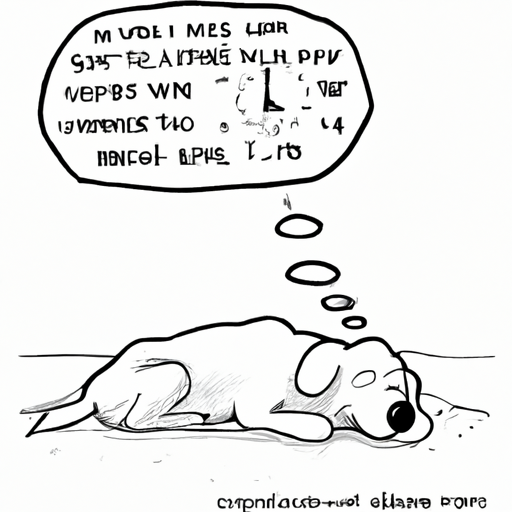“`markdown
How Much Do Dogs Sleep A Day?
Understanding Your Dog’s Sleep Habits
As a caregiver, you know that sleep is vital for your furry friend’s health. Just like humans, dogs need sufficient amounts of sleep to recharge their bodies, maintain a healthy immune system, and support cognitive functions. However, the amount of sleep a dog needs can vary greatly, depending on its age, breed, and health status.
Factors That Influence a Dog’s Sleep
-
Age: Puppies and older dogs tend to sleep more than adult dogs. Puppies can sleep up to 20 hours a day as they grow and develop, while senior dogs may need more sleep due to health issues or simply because they tire more easily.
-
Breed: Certain breeds, such as large breeds and brachycephalic breeds (those with short noses and flat faces), often sleep more than other breeds.
-
Health and Lifestyle: Dogs with health issues may require more sleep. Similarly, a dog’s lifestyle can impact its sleep — dogs that have more mental and physical stimulation throughout the day will sleep less than less active dogs.
Typical Sleep Patterns in Dogs
| Age | Average Sleep Duration |
|---|---|
| Puppies | 18-20 hours |
| Adult Dogs | 12-14 hours |
| Senior Dogs | Up to 18 hours |
How to Support Your Dog’s Sleep
-
Create a Comfortable Sleep Environment: Make sure your dog has a quiet, comfortable place to sleep. This could be a designated dog bed, a crate, or even a favorite spot on the couch.
-
Establish a Routine: Dogs thrive on routine. Establishing a regular sleep-wake cycle can help regulate their sleep and ensure they’re getting enough rest.
-
Provide Plenty of Exercise: Regular physical activity is important for maintaining your dog’s health and can also help ensure they sleep well.
-
Consult a Vet: If you notice any changes in your dog’s sleep patterns, it’s always a good idea to consult with a vet. Changes in sleep could be a sign of underlying health issues.
Frequently Asked Questions
Q: Is it normal for my dog to sleep all day?
A: While dogs sleep more than humans, they should not be sleeping all day. If you notice a significant change in your dog’s sleep patterns, consult with a vet.
Q: Can dogs have sleep disorders?
A: Yes, dogs can have sleep disorders such as insomnia, sleep apnea, and narcolepsy. If you suspect your dog has a sleep disorder, consult with a vet.
Q: How can I tell if my dog is getting enough sleep?
A: Dogs that are getting enough sleep will generally be energetic and alert when they are awake. Changes in behavior, such as lethargy or irritability, could be signs of sleep deprivation.
“`



